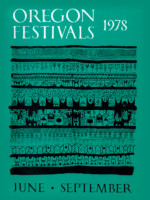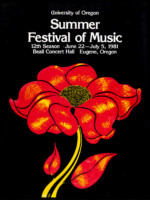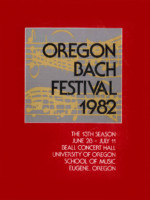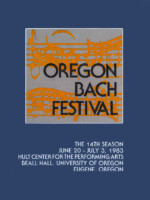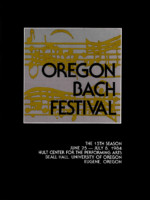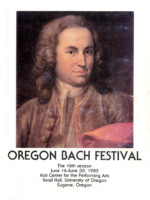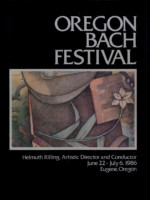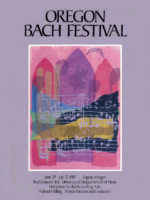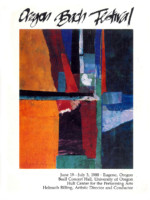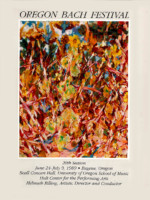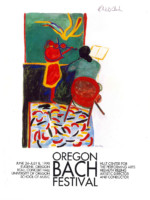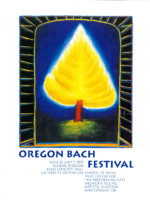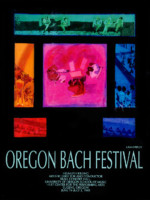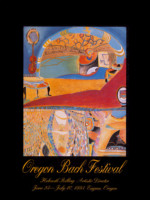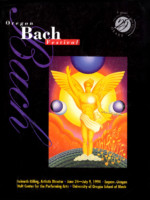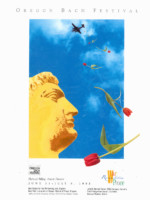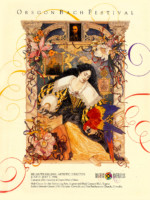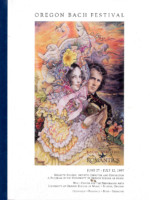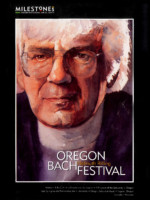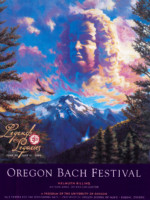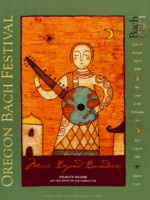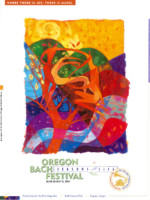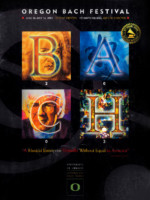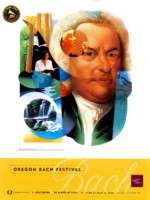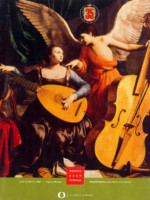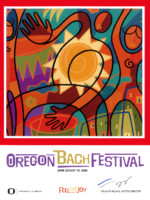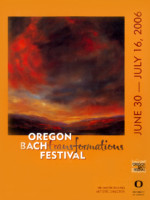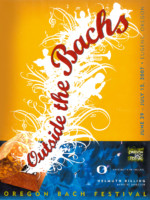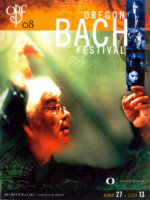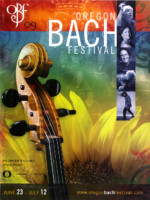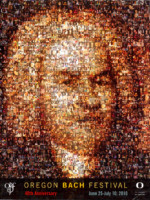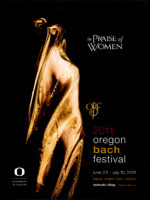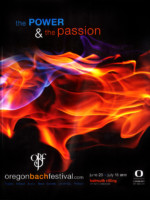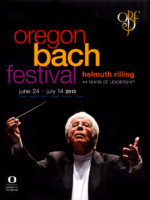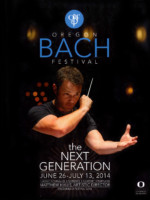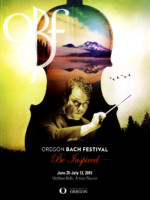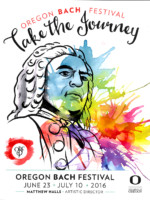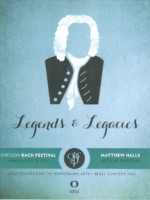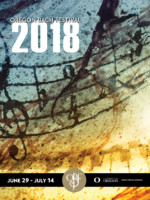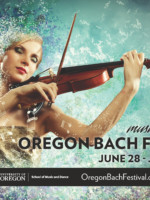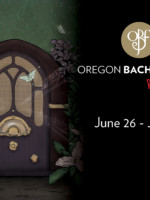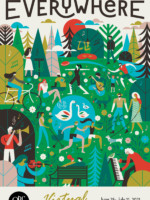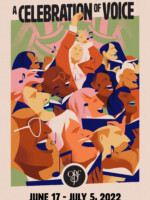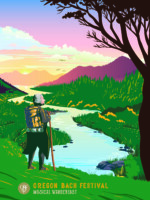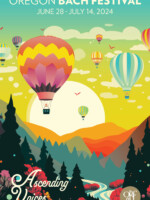In 1970 German organist and conductor Helmuth Rilling came to the University of Oregon for a series of workshops and an informal concert. Since then, Oregon Bach Festival—through the efforts of Rilling, co-founder Royce Saltzman, and a cadre of volunteers, musicians, patrons, and donors—has blossomed into one of the foremost celebrations of Bach’s music and legacy in the United States.
That first collaboration between Rilling and Saltzman was modest, culminating in a concert of short choral and organ works. But in 1971, under the banner of the “Summer Festival of Music,” four concerts were added to the schedule, including a complete performance of Bach’s St. John Passion. Over the next few years, the Festival expanded to include performances of major choral-orchestral works, instrumental and chamber concerts, solo recitals, workshops, and master classes. As the decade closed, the event was renamed Oregon Bach Festival, more clearly defining the Festival’s location and honoring the composer who inspired the founders. The Festival was originally housed at UO’s Beall Concert Hall, one of the finest chamber recital rooms in North America.
With the 1982 opening of the Hult Center for the Performing Arts, the Festival was able to expand and attract renowned performers of the highest caliber. Such internationally regarded artists as Arleen Auger, Sylvia McNair, Frederica von Stade, Ben Heppner, Thomas Quasthoff, Jeffrey Kahane, Robert Levin, Ya-Fei Chuang, Nicholas McGegan, Sarah Chang, Midori, Joshua Bell, Yo-Yo Ma, Bobby McFerrin, The 5 Browns, Pink Martini, and Savion Glover have been introduced to the Eugene-Springfield community, courtesy of OBF. Members of the Festival chorus and orchestra come from professional organizations throughout the United States, Canada, and Europe and return year after year. In 2001, OBF won a Grammy award for Best Choral Performance for the Festival’s world première recording of Krzysztof Penderecki’s Credo, and the 2009 world première of Sven-David Sandström’s Messiah became one of many examples of the Festival’s commitment to celebrating the Bach legacy with new commissions.
In 2011, the Festival named British conductor Matthew Halls as its second artistic director. The transition was commemorated with a “Passing of the Baton” concert at the 2013 Festival that included a special OBF commission from Scottish composer James MacMillan to celebrate Rilling’s eightieth birthday. During his tenure, Halls made significant artistic contributions to the Festival, including a masterful reconstruction of Bach’s St. Mark Passion and the establishment of the Berwick Academy for Historically Informed Performance.
Education has always been the heartbeat of the Festival. The Master Class in Conducting offered advanced training in choral and orchestral conducting. Over the years it served more than 1,200 conductors from across the U.S. and around the world. The Discovery Series Rilling pioneered in Eugene—involving the master class program, lecture-demonstrations, and concerts—became the model for the Internationale Bachakademie Stuttgart, which he founded in 1981, as well as for subsequent Bach academies led by Rilling in Eastern Europe, South America, and Asia. Stangeland Family Youth Choral Academy provides an intensive training and performing experience for high school singers from across the globe. In 2014, the Festival debuted its Organ Institute and in 2015 the Berwick Academy—a new historically-informed performance training orchestra for graduate students and young professionals— was launched.
Festival concerts have reached worldwide audiences through broadcasts on National Public Radio, American Public Media, Voice of America, the European Broadcasting Union, and both the British and Canadian Broadcasting Corporations. Writers from the Times of London, Los Angeles Times, and Wall Street Journal have praised the Festival for its “pioneering approach to programming,” describing it as “virtually without equal in America” and “one of the world’s leading music festivals.”
As Festival artistry has grown, so has funding from such public and private supporters as Bigfoot/Pepsi-Cola, Wildish Companies, National Endowment for the Arts, Oregon Arts Commission, Oregon Cultural Trust, and both the Silva Endowment and the Nils and Jewel Hult Endowment of the Arts Foundation of Western Oregon through the Oregon Community Foundation. Important individual contributions have come from thousands of donors. For more than five decades, the masterworks of Bach and his legacy down the ages have found enthusiastic and committed audiences in the Pacific Northwest through Oregon Bach Festival. OBF is committed to honoring the past, cherishing its legacy, and celebrating what promises to be an illustrious future.


